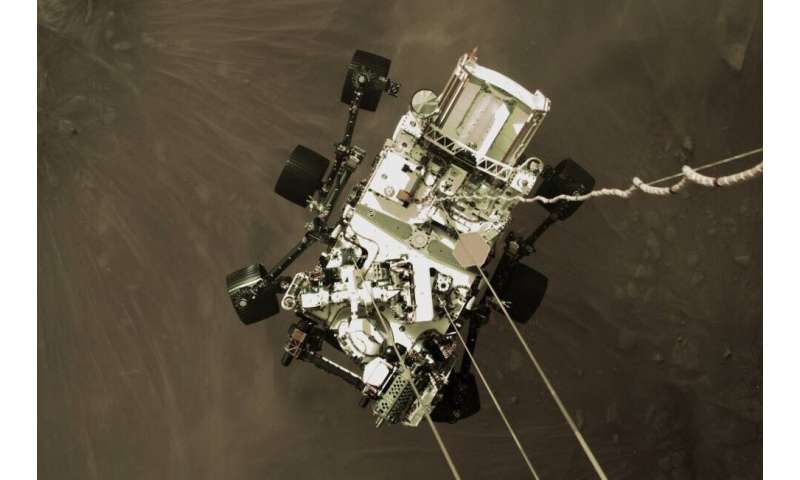Best of Last Week: Perseverance lands on Mars, machine learning in your pocket, and Antarctic animals

This week, NASA made worldwide headlines as its rover Perseverance landed on Mars to look for signs of ancient life—the ninth spacecraft since the 1970s to land successfully on the red planet. Highlighting the magnitude of the successful landing was a photograph of the descending rover taken from the sky crane just minutes before touchdown. And shortly thereafter, the Ingenuity Mars Helicopter sent a status report indicating that both it and its base station were operating as expected—the helicopter will remain affixed to the underside of Perseverance for 30 to 60 days before launching into the Martian atmosphere.
In technology news, a combined team of researchers from Dalian University of Technology in China and City University of Hong Kong announced that they had created a system that automatically generates comic books from movies and other videos. Also, researchers with the EPFL's School of Computer and Communication Science and the French National Institute for Research in Digital Science and Technology showed that it was possible to put machine learning in your pocket via a smartphone. And a team at Tampere University used artificial intelligence to predict nonlinear dynamics that take place when ultrashort light pulses interact with matter—possibly paving the way to more efficient and faster numerical modeling for applications such as manufacturing, imaging and surgery. Also, a team at Cornell University began work on a public digital atlas of extreme wind speeds for wind energy applications to catalog the most suitable places for wind turbine farms.
In other news, Russia's health watchdog Rospotrebnadzor reported on live television that a team at Vektor laboratory had detected the first case of H5N8 avian flu in humans. Also, an international team of researchers reported that they had accidentally discovered strange creatures living beneath Antarctica's ice shelves—at 900 meters down, they found stationary animals that were similar to sponges living in -2.2°C water.
And finally, if you are someone who suffers from frequent bouts of ill temper or chronic depression, you might be interested in work conducted by a team at the University of Michigan—they found a connection between irregular sleep schedules and bad moods and depression.
© 2021 Science X Network